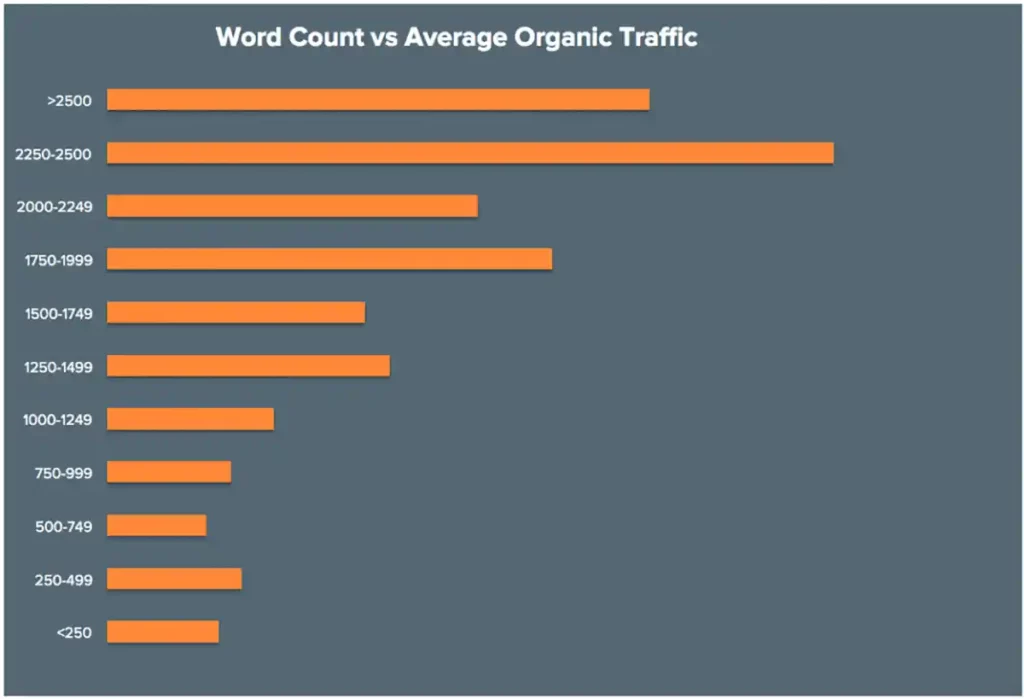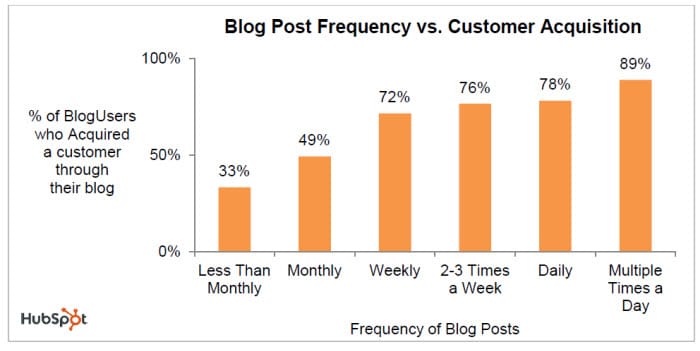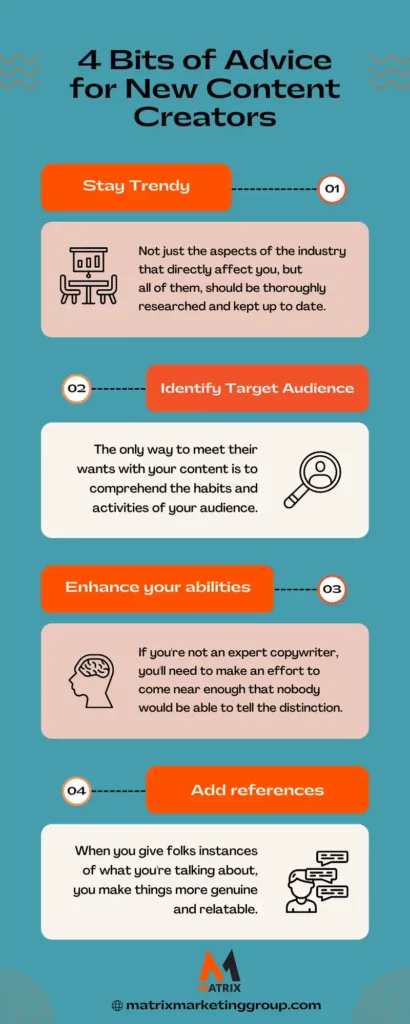Content Marketing for Financial Firms: Connecting with Your Audience
Learn About Content Marketing for Financial Firms: Connecting with Your Audience.
Content marketing has become increasingly popular for financial firms to draw in more business. Financial services companies must thoughtfully craft their content marketing strategy to connect with the right audience.
In today’s digital age, you must think beyond traditional advertising and find ways to engage with your target customers through meaningful content.
As an insurance firm, do you ever wonder how other businesses have a full pipeline? It is likely because they have used content marketing to get their message out.
Content marketing for financial services firms will help you build relationships with your customers and prospects, learn how to make finance content, increase brand visibility, and create valuable resources that give your audience useful information about your products or services. Learn about new product roadmaps.
Content marketing works best when you tailor the content specifically to address customers. Learn how to launch a first used case in 30 days for generative AI.
This blog post will discuss strategies for using content marketing as a financial firm, finance content ideas, and finance content writing examples, from defining your objectives and connecting with an audience to understanding how different channels work together as part of a greater effort.
By developing certain best practices, marketers can create effective campaigns that build relationships while driving growth over time. Add your financial content for social media and watch sales grow.
What is content marketing?

Content marketing is a type of marketing that focuses on creating valuable content for a specific audience to win their trust and build lasting relationships.
It involves creating and publishing content across various channels, such as:
- Blogs
- Social media
- Email marketing
- Visual display images
- Video
- Podcasts
These are used to build an engaging presence and attract potential customers. The core of content marketing is to provide relevant and useful information to the target audience to promote brand awareness, drive website traffic, and ultimately generate leads and sales.
It requires a strategic approach, creativity, and a deep understanding of the target audience’s preferences and needs.
With the power of content marketing, businesses can establish themselves as authorities in their industry and create a loyal following that will ultimately drive growth and success.
What are the benefits of content marketing

In today’s digital world, content marketing is essential for businesses looking to connect with their target audience.
There are a plethora of benefits that come with financial content marketing, ranging from increased brand awareness to improved customer loyalty.
By creating valuable and informative content, businesses can establish themselves as thought leaders in their industry, increasing trust and credibility with their audience. In addition, content marketing can also drive more traffic to a business’s website, boost its search engine rankings, and generate quality leads.
A solid content marketing strategy can help businesses build a strong online presence and drive revenue growth.
How does content marketing impact my website traffic?

In today’s digital world, websites have become essential for businesses to engage with their audience. However, more than simply having a website is required; it must attract visitors, generate leads, and drive conversions.
This is where content marketing comes into play. By providing valuable, relevant, and consistent content to your audience, you can establish trust, build brand awareness, and position yourself as an industry expert.

As a result, your website traffic will increase, and your overall online presence will improve. Content marketing is a powerful way to boost your website traffic, and it’s essential for businesses looking to succeed in a competitive digital marketplace.
Understand Your Audience – Get to know your audience and their interests, needs, and wants
As a content creator, understanding your audience is crucial to creating content that resonates with them. It’s not enough to have a general idea of who they are; you need to know them and their interests, needs and wants.
By doing so, you can create content that captures their attention and provides value to their lives. Whether through social media, email newsletters, or in-person events, engaging with your audience and showing them that you care about their opinions and ideas can help build a loyal following.
So take the time to understand your audience and tailor your content to their needs, and you’ll be well on your way to building a successful brand.
Establish a Tone of Voice – Develop a tone that sets you apart from other financial firms and resonates with your target audience.
In the competitive world of finance, it’s essential to stand out from the crowd. One way to do that is by developing a unique tone of voice that speaks directly to your target audience.
Your message should resonate with them and set you apart from other firms that may sound bland or generic. By establishing a clear tone of voice, you’ll make a lasting impression that can help build trust, loyalty, and a sense of community among your customers.
Whether you aim to be authoritative, conversational, or humorous, the key is consistency across all your communication channels. With the right tone of voice, you can create a compelling brand that resonates with your audience and sets your financial firm apart from the competition.
Find the Right Content Platforms – Research which platforms are best for communicating with your audience.

In today’s digital age, finding the right content platforms to engage with your audience has become increasingly important. With so many options available, from social media to email marketing, it can be overwhelming to know where to start.
To ensure you connect with your target audience effectively, it’s important to do your research and determine which platforms will be the most effective for your business.
By understanding the behavior and preferences of your audience, you can select the right content platforms that align with their needs and interests, helping you to build a loyal following and drive results.
So, take the time to explore your options and find the content platforms that will help you reach and engage with your customers in the most meaningful way possible.
Create Quality Content – Develop informative, interesting, engaging, and helpful content for your customers.
In today’s online world, creating high-quality content is essential for success. By producing informative and engaging materials, you can provide your customers with the information they need while also establishing your brand as a reliable source of information.
To achieve this, it’s vital to understand your target audience, identify their needs and interests, and craft content that resonates with them.
With a professional tone and a focus on creating value for your readers, you can drive traffic to your website, improve your search engine rankings, and, most importantly, strengthen your relationship with your customers. So, start honing your content creation skills today and see the positive impact it can have on your business!

Set Up Automated Workflows – Use automated workflows to maintain content creation and distribution consistency.
Creating consistent content and distributing it efficiently can be a daunting task, but with the help of automated workflows, it can become a breeze.
Automated workflows are a great tool to ensure content creation and distribution remain consistent across multiple platforms.
By setting up automated workflows, you can save time and prevent mistakes by automating repetitive tasks such as scheduling social media posts or sending emails.
Not only does this allow you to focus on creating high-quality content, but it also ensures that your audience receives your content promptly and consistently.
Implementing automated workflows is a smart investment for businesses and individuals looking to streamline their content creation and distribution process.
Measure Results & Make Adjustments – Track results to ensure you achieve desired outcomes from your content marketing efforts.
In today’s digital age, content marketing has become an indispensable tool for businesses to reach potential customers. However creating and distributing content alone will only ensure success if you measure the results and make necessary adjustments in your strategy.
Tracking your content marketing efforts is crucial to determine if you’re achieving the desired outcomes, such as increased website traffic, higher engagement on social media, or improved conversion rates.
You can optimize your content marketing efforts and allocate resources where needed by identifying what’s working and what’s not. So, stay vigilant and measure your results regularly to stay ahead of the competition.
Content marketing is a powerful tool for financial firms. It can help them elevate their presence, increase website traffic, and attract new customers.
By understanding their audience, creating quality content, establishing a tone of voice, researching the right content platform, and setting up automated workflows, financial services businesses can successfully create and manage content in an organized manner.
Content marketing offers numerous benefits, making it an invaluable tool for those looking to grow their business. So what are you waiting for?
Now is the time to start investing in content marketing to drive your business forward. And don’t forget – if you want more support, a free website audit could be the perfect starting point.
What Financial Businesses Are Using Content Marketing Strategies?
- Vanguard
- Fidelity Investments
- Charles Schwab & Co., Inc.
- Wealthfront
- Betterment Financial LLC
- Principal Financial Group, Inc.
- SoFi Wealth Management
How does Charles Schwab Use Content Marketing?
Charles Schwab & Co., Inc. is a leading financial services company that provides retail investors access to financial products, research, and advice. The company has an active content strategy and uses various forms of content to engage customers and build relationships with them.
One example of how Charles Schwab uses content marketing is through its “Insights” section on its website. This section contains articles, videos, webinars, presentations, and other resources for investors to learn about different topics related to investing, such as budgeting, retirement planning, and asset allocation.
Additionally, Charles Schwab also produces weekly podcasts that feature interviews from experts who provide their insights into the markets or address specific questions from customers. These podcasts offer investors valuable information to make informed decisions when investing their money.
Charles Schwab also offers regular webcasts detailing retirement planning, investment strategies, tax changes, etc. All these webcasts are recorded and stored on their website for anyone who missed out on the live session to watch it later at their convenience.
Charles Schwab also utilizes social media platforms like Facebook, Twitter, Instagram, and YouTube to promote their content while connecting with investors directly through these channels. Their social media posts are tailored to a range of topics, including market news updates, investment tips, educational resources, and more which helps expand the reach of their content even further.
By leveraging various forms of content marketing, including podcasts, webcasts, articles, and social media posts, as well as user-generated content such as customer reviews and testimonials, Charles Schwab & Co., Inc has been able to engage effectively with customers while establishing themselves as a thought leader in the industry.
Conclusion
Content marketing is a powerful tool for financial firms, but knowing where to start can be challenging.
Staying organized and creating content that resonates with your audience takes work. Plus, you need tracking results to be able to determine if your efforts are paying off or not.
With the help of automated workflows and regular measurement of results, financial services businesses can successfully create and manage content organizationally.
This will enable them to optimize their content marketing efforts and allocate resources where needed for maximum success. So don’t wait – start your journey toward successful content marketing today!
General FAQs
How can financial services businesses leverage content marketing?

Financial services businesses can leverage content marketing to elevate their presence in the market, increase website traffic, and attract new customers. This is done through understanding their audience’s needs, creating quality content tailored for them, establishing a tone of voice that resonates with them, researching the right content platform(s) that suits their target audience’s needs best, setting up automated workflows to ensure consistency in content creation and distribution, measuring results regularly to understand what’s working and what’s not working with regards to their strategy, as well as making necessary adjustments accordingly.
What should I do if I want more support for my content marketing efforts?

If you need more guidance or support for your content marketing efforts – such as understanding how it works in the context of financial services businesses – you can start with a free website audit from an experienced digital marketing consultant or agency that specializes in financial services businesses specifically. They will be able to provide targeted feedback on how you can better utilize content marketing strategies for maximum success with your target audience base!
How Does Content Marketing Increase Website Traffic?

Content marketing helps to increase website traffic by leveraging the power of SEO (search engine optimization). By optimizing content for relevant keywords, content marketers can attract more search engine users and bring them to their websites. Additionally, content marketing has the potential to draw in organic links from other websites; when they link to your content, it boosts your rankings within search engine results pages as well as brings additional visitors directly from those other sites. Content marketing also helps build trust and credibility with potential customers, which can help convert them into loyal fans who are more likely to return to your website frequently.
Does Content Marketing Increase Website Leads?

Yes, content marketing does have the potential to increase website leads. By creating content tailored for relevant keywords and phrases, businesses can attract more search engine users looking for the type of information they provide. Additionally, by building trust and credibility with potential customers through content, businesses can convert them more easily into leads. These customers may feel more comfortable engaging with a brand that has provided helpful information in the past.

